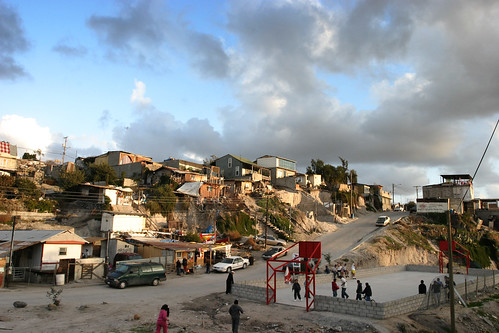Eyes unopened, tangled in sheets and the morning light, the sound invades my waking mind. “Smack that, all on the floor, smack that, give me some more, smack that, until you get sore, smack that, oh oh oooh . . . “ It can’t be inside the room, and it isn’t coming from the window. Synapses slowly begin to fire in order and I realize it’s coming from another sector of my brain where the absent DJ left a record spinning. Smack that, la la la laaa, smack that, la la la laaa. I flop out of bed and step into the shower, but the song continues…
All day, I caught myself whistling, humming, and strutting to “Smack That.” See, I have this unconscious musical recorder that’s something like muscle memory. I hear music through the window of a passing car, and 10 minutes later, I’m whistling it. But waking up with a song in my head is rare. I imagine the political ads that pummeled me the night before while watching Law & Order SVU could have knocked something loose. No commercials for iPods, movies, or shampoo. Just wall to wall political propaganda. Just thinking of all the money that goes into convincing voters makes me ill.
A troubling trend in the campaign wars has to do with “family values.” I picked up this pamphlet at a church in Escondido. It’s from FamilyVoterInfo.org and at first glance, appears to list candidates and their opinions on the issues. But several things are a little off kilter. The only Democratic candidate whose responses appear is Phil Angelides, and every Republican candidate agrees on the issues, making this anything but a comparative study. It’s real purpose becomes clearer when you notice that drivers licenses for illegal immigrants (against), oil tax for alternative energy research (against), political campaign reform (against), and raising property taxes (against) are all now apparently family values issues. The only issues that seem remotely related to families are parental notification for abortion (supporting a YES vote), limiting marriage to one man and one woman (supporting a YES vote), and paid preschool for all children (supporting a NO vote).
If this wasn’t odd enough, the issues for congressional candidates include school choice vouchers (YES), voting against raising taxes (YES), registering firearms (NO), legislating to limit abortion (YES), parental consent for abortion (YES, note that this time they used the term “consent” not “notification”), gay marriage (NO), censoring libraries (YES), and amnesty for illegal immigrants (NO). Ok, since when did immigration status start threatening family values? And how does NOT requiring gun owners to register and license weapons protect families? The whole idea is absurd. A shameless attempt to influence conservative Christians into voting Republican or family values in this country will be lost.
Didn’t Jesus teach loving your neighbor as yourself, giving to the needy, and nonviolence? Christianity would be a lot more attractive if Christians worked a little harder to practice the fundamental principles rather than promoting political agendas that include military action, eliminating services for the poor, and selfish tax laws.
